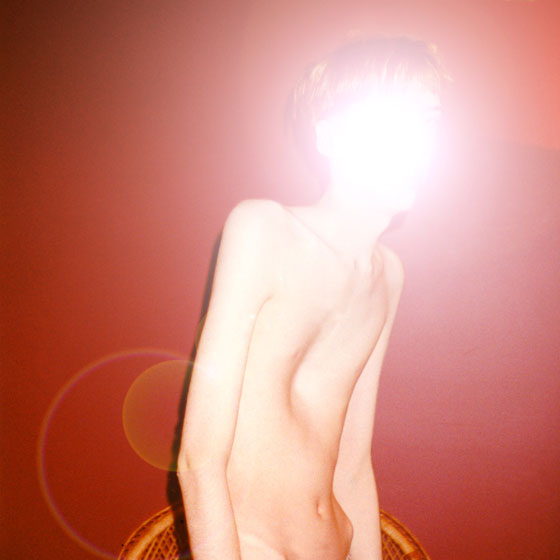Bradford Cox is in a unique position amongst popular musicians: because of the enormous volume of music he gives away completely for free on his blog, he has to work harder to produce music and products his fans (who have not yet abandoned legal acquisition of music) will actually be willing to pay for. Obviously, there will be a lot who buy anything he puts out, but also many who legally download his blog releases and are sated (which is unsurprising considering their quality; Weekend EP, April 14, and Maybe Logic are but three excellent ones), and ignore the physical releases, of which there are many.
Atlas Sound’s first full LP, Let the Blind Lead Those Who Can See But Cannot Feel is a satisfying, somewhat hypnotic listen: every track has exactly the same lo-fi bedroom vibe, and earlier this year, Cox’s own guitarist in Deerhunter built on this formula brilliantly; Lockett Pundt’s (under the equally obtuse but satisfying moniker of Lotus Plaza) The Floodlight Collective is more focused on rhythm and guitar than Atlas Sound, and Cox even drums on the beautiful “Different Mirrors.” For those of us who did not snap up the demo version of Logos last year via Cox’s leaked Mediafire folder, the recent “Time Warp” blog-single is the best indicator of this record’s sound; there is a definite move towards cleaner, more guitar-orientated songs, and Bradford states in the press release that “I became bored with introspection.” The first track to be debuted was “Walkabout” (featuring Noah Lennox, aka Panda Bear, of Animal Collective), and is clear evidence of this; the expectations of such a collaboration are met gloriously: a stiflingly infectious piano and Cox’s worldly chorus of ‘what did you want to see/what did you want to be when you grew up’ are begging to soundtrack your meaningful summer memories, and Beatles-esque track ‘Sheila’ is a typical example of Cox’s oft-used aesthetic: as with the title track of recent Deerhunter EP, Rainwater Cassette Exchange, poppy, sun-flared rhythms are juxtaposed with bleak, despondent lyrics: ‘we’ll die alone together’ Cox croons. Closer “Logos” is another standout However, this is not a summer release and accordingly these two tracks are by no means indicative of the rest of the record.
Opener “The Light That Failed” is a brooding, slowly convulsing funereal procession; a gently picked guitar and Cox’s warbled, hopeless vocals is a surprisingly depressing opener. It is, however, beautifully dejected, and the final utterances of ‘the light…it failed’ perhaps being the most candid and downcast moment of Atlas Sound’s discography. The nine-minute “Quick Canal” features Stereolab’s Laetitia Sadier, and is a likely candidate for the album’s ‘centre-piece’; utilising by-now familiar swathes of feedback and pulsing whirlpools of synths and percussion, perforated by a swaying snare and Sadier’s voice soaring like an oasis of calm in a desert of swirling haze. It is a wonderful contrast to Cox’s muted and evocative tone, and demonstrates how the album is most successful when it aims to directly express or conjure a mood that must’ve occurred to Cox during the “scrapbook” process of recording. “An Orchid” illustrates this via contradiction, having no real focus or hook or interesting vocal, and so being the album’s least interesting moment. “Kid Klimax” is the opposite: a simple keyboard sample, strummed guitar and a gradually forming haze, building to a unbearably troubling climax, with Cox desperately lamenting “oh my God” over and over. You definitely get the impression he is evoking a particular bygone instant or sequence, and the horror of hindsight is tangible and moving.
Logos is not a particularly radical development of Bradford Cox’s aesthetic (if it ain’t broke, don’t fit it, etc), but a toybox of striking, fun and inventive songs, indeed adding up to a “scrapbook” (as Cox describes it) of evocations and sentiments.

